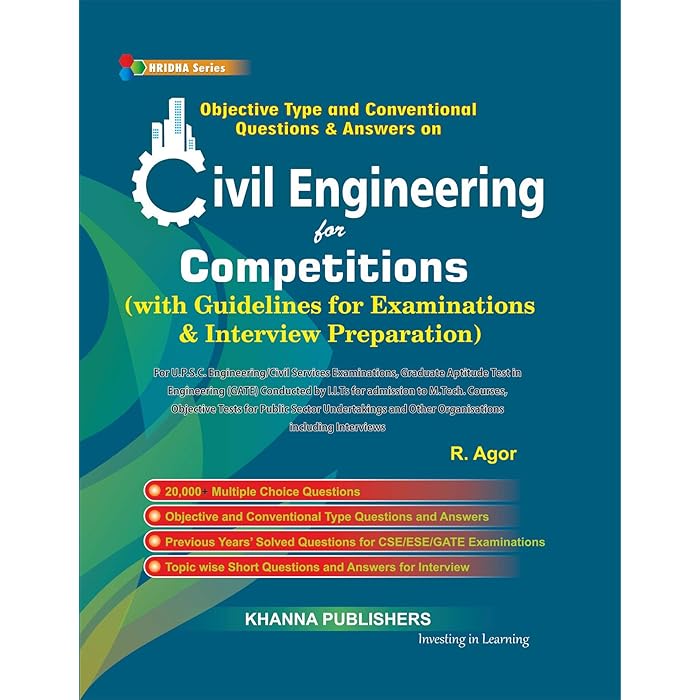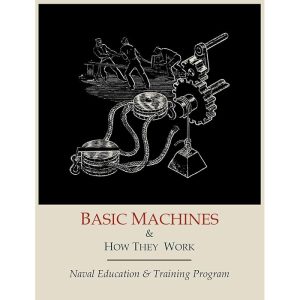Description
**Civil Engineering for Competitions** refers to the specialized knowledge, strategies, and skills required to excel in competitive exams and challenges related to civil engineering. These competitions may range from academic exams like the GATE (Graduate Aptitude Test in Engineering) to design and innovation contests, or even professional certifications. Here’s a breakdown of key areas to focus on for civil engineering competitions:
### 1. **Core Topics in Civil Engineering**
To perform well in any civil engineering competition, understanding the following core subjects is essential:
– **Structural Engineering**: The design and analysis of structures like beams, columns, and bridges. Topics include:
– Strength of materials
– Structural analysis (e.g., bending, shear, deflection)
– Concrete and steel design
– Advanced structural design (e.g., earthquake-resistant structures)
– **Geotechnical Engineering**: Focuses on the properties of soil and rock, and their interaction with structures.
– Soil mechanics
– Foundation engineering
– Slope stability
– Geotechnical investigations
– **Transportation Engineering**: Covers the planning, design, and operation of transport systems.
– Traffic flow theory
– Pavement design
– Highway engineering
– **Environmental Engineering**: Concerns water and wastewater treatment, solid waste management, and environmental protection.
– Water supply and treatment
– Wastewater treatment
– Air pollution control
– Solid waste management
– **Water Resources Engineering**: Deals with the planning and management of water resources.
– Hydrology
– Fluid mechanics
– Irrigation and drainage systems
– Hydraulic design
– **Construction Materials and Techniques**: Knowledge of materials used in civil engineering projects.
– Concrete, steel, and timber materials
– Construction methods
– Sustainable and green building techniques
### 2. **Exams and Certifications**
Several competitive exams and certifications are crucial for advancing a career in civil engineering:
– **GATE (Graduate Aptitude Test in Engineering)**: A national level exam for admission to M.Tech courses and recruitment in PSUs (Public Sector Undertakings).
– Focus on core subjects, numerical aptitude, and engineering mathematics.
– **IES (Indian Engineering Services)**: A highly competitive exam for recruitment to various government departments.
– **State PSC (Public Service Commission)** Exams: Local government exams for civil engineers in various states.
– **Professional Certifications**: Certifications like PMP (Project Management Professional), Six Sigma, and LEED (Leadership in Energy and Environmental Design) can be valuable.
### 3. **Problem Solving & Design Competitions**
Civil engineering students and professionals often participate in design challenges or problem-solving competitions. Some of the well-known ones are:
– **Concrete Canoe Competitions**: Teams design and build concrete canoes that float and race.
– **Bridge Building Competitions**: Involves designing and building bridges with specific materials or under specific constraints.
– **Solar Decathlon**: A competition focusing on designing sustainable houses powered by solar energy.
– **Civil Engineering Olympiads**: Local, national, or international competitions testing theoretical and practical knowledge in civil engineering.
### 4. **Effective Study Strategies**
– **Focus on Conceptual Clarity**: It’s vital to grasp the fundamentals of each subject, not just memorizing formulas.
– **Practice Numerical Problems**: Solve a wide variety of problems, as most civil engineering competitions are heavily focused on problem-solving.
– **Refer to Standard Textbooks**: Books by authors like R.K. Bansal, S.K. Duggal, and others are frequently used for competitive exam preparation.
– **Take Mock Tests**: Regularly practicing mock exams can improve time management and exam-taking strategy.
– **Stay Updated**: Follow recent developments in civil engineering, including new construction methods, materials, and technologies.
### 5. **Soft Skills and Presentation**
– **Communication Skills**: Some competitions and exams also require clear communication of complex ideas, so it’s essential to practice presenting your ideas concisely.
– **Time Management**: Civil engineering problems often require careful planning and time management. Practice solving problems within set time limits.
– **Teamwork**: In team-based competitions, like design challenges, being a good team player is crucial.
### 6. **Recent Trends**
– **Sustainability in Civil Engineering**: Sustainable practices are becoming a central theme, focusing on eco-friendly materials, energy-efficient buildings, and waste reduction.
– **BIM (Building Information Modeling)**: This technology is transforming the construction industry and is important for modern civil engineers to learn.
– **Smart Infrastructure**: With the rise of smart cities, knowledge of technology-driven infrastructure projects is beneficial.
### 7. **Resources for Preparation**
– **Online Courses**: Platforms like Coursera, Udemy, and NPTEL offer a wide range of courses for civil engineering students.
– **Study Material and Books**: Invest in reference books and material from coaching institutes that specialize in civil engineering exams.
– **Discussion Forums**: Engage with online communities and forums like Stack Exchange, Engineering Forums, or Reddit’s civil engineering subreddit for peer support.
### 8. **Practical Experience**
– **Internships**: Gaining practical experience through internships will help in applying theoretical knowledge to real-world situations.
– **Workshops and Seminars**: Attend events where you can learn about the latest technologies and trends in civil engineering.





Reviews
There are no reviews yet.